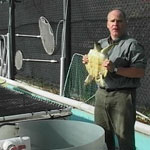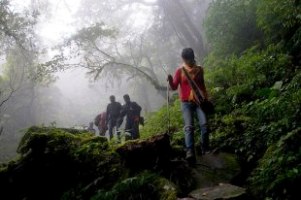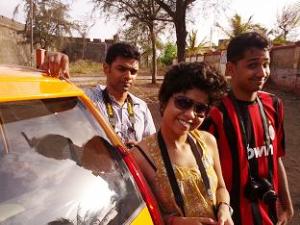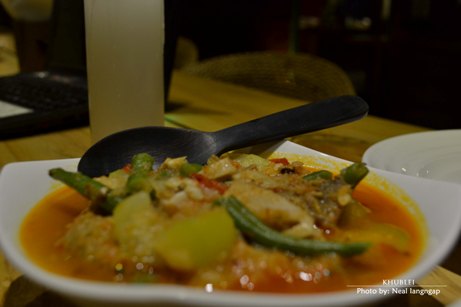The exotic heritage bungalow ‘Barooah Niloy’ located in Guwahati’s Jorpukhuri area hosted the third in the series of The Thumb Print Conversations. The conversation was held in collaboration with the Foundation for Social Transformation (FST), in their office which is housed in the picturesque bungalow.
The event was graced by prominent personalities from different walks of life. Eminent writer and columnist Mitra Phukan steered the conversation. The topic of discussion “Media and Northeast India” mainly centred round marginalisation and misrepresentation of the region in the media. It is usually seen that the Northeast has always been underreported in media and when there are stories, they are mostly about incidents of violence and terror.
Samudragupta Kashyap, the Indian Express pointsman in Northeast India and a walking encyclopaedia on the region said that he has been in the profession for about 32 years and has been making effort to break the stereotype representation of Northeast in the ‘national’ media. He works for a national newspaper and writes about people and places and not the incidents. The 20 stories that he wrote on Nagaland, not a single one was based on violence. He further says that media outside do not cover the region as the other areas. There have been no comparative study in this regard, but recently DONER has endeavoured to do so. There is no dearth of stories in the region.
Tea veteran Robin Borthakur expressed that the problem of Assam and other parts of Northeast is precisely that the region is focussed for wrong reasons. The media outside does not have a proper idea of the region. Without going to a place news cannot be made. He shared one of his experiences in this regard while he was in AIR, where he reported an event and lecture of a minster without being present there. But now, he says, times have changed and it is important to have a firsthand report of all news. Coverage of the region is inadequate and the media does not show any positive outlook towards the region. The national media is a little acrimonious to the region.
On the contrary senior police officer and writer Kula Saikia wondered why there should be such uproar on highlighting the region distinctively, why ghettoising it. He recalls the period when he was in Delhi during 1970’s and never had to assert his identity of being from the Northeast. It never occurred to him that he belonged to a different part of the country. He came up with a few thought-provoking questions like --- Why do we require special coverage? Aren’t there many other parts of India which are underreported? Do we have a really good media personalities? What are the exceptional things that should be reported? Why have we failed to produce exceptional people? The whole thing is about supply and demand kind of situation.
Mitra Phukan in this context said that parallel to soft journalism, for instance reports on cuisines and fashion, there is negative reporting or hard news, which is also termed as masculine news. “What the journalists need to do is to come out from the position of power. It is always that success is measured from what we have received, not from what we have produced,” said Phukan.
Young entrepreneur Samrat Deka says that there is a demand for hard journalism. People want immediate information. The supply depends on the demand, and how healthily it is offered. People are taking what we are giving them.
Ruchira Neog of the Voluntary Health Association of Assam expressed that connection with the media is very important. The hard news are glorified, for instance we are glorifying violence. She mentioned about Hahpuria, the only tobacco free village in Assam, which came to limelight as she connected it to the media.
Photographer Shyamal Dutta cited the examples of television channels like Al Jazeera, which challenged the western media, which started in a place (Doha) where no media could reach. It is now an icon in the entire world of media. “We have to have the power, quality articles. Al Jazeera is not crying that there is nothing in the middle-east to report on.”
Teresa Rehman, Managing Editor, The Thumb Print greeted the students from Mizoram University, Mass Communication Department who were a pleasant addition to the conversation. She narrated the journey of The Thumb Print which had completed one year. She came up with the idea of this online news magazine because many of her stories did not get place in the so-called ‘national’ media of the country, some of them were published by media of other countries. She realised the might of the internet and realised that she could reach out to the world through it. So, from her living room of Tezpur, she started the online magazine, which she brands as an “international magazine with a Northeastern soul”.
There was an interactive session with the students, when a student of Mizoram University expressed her indignation saying that the media house never come to Mizoram to recruit the Mass com students. Media study is a totally new area for them as earlier Manipur was famous for producing bureaucrats. One student felt that it was a challenge to study a discipline like the media in a state like Mizoram.
Disabled rights activist Arman Ali said why should be the people sitting in Delhi only should think themselves as national. “Hats off to Teresa Rehman to make such an effort to reach the world,” he said. He laments the fact that media has stopped learning. They think they know it all. What is not in the newspaper, people do not want to know. There is no harm in reporting the incidents, but those should not be stereotyped.
Sriparna Baruah of the Indian Institute of Entrepreneurship said that much is being done in Northeast as the region gets enough fund. But no media is interested in highlighting the works.
K. Ahmed, Director, FINER, said that there are so many advertisements in the premium newspapers that hardly any space is left for the good stories. It is difficult to project the good work.
Gayatri Buragohain, head of FST spoke about her organisation and appealed the people come up with their contribution to carry on the projects in the Northeast.
Rajashree Dasgupta, senior journalist from Kolkata said that it was an invigorating discussion. It was time people started lamenting and started doing something about their situation. She lauded the efforts of made by The Thumb Print which she felt was probably the right way to go about it.
Geeta Seshu, consulting editor, The Hoot said she is delighted to be a part of the conversation, and the questions that were raised are not very easy to be answered. She added, “So the conversation does not end here, it must continue.....”
Find us on facebook: facebook.com/TheThumbPrintMag
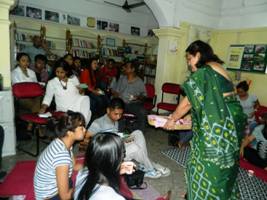
.jpg)









